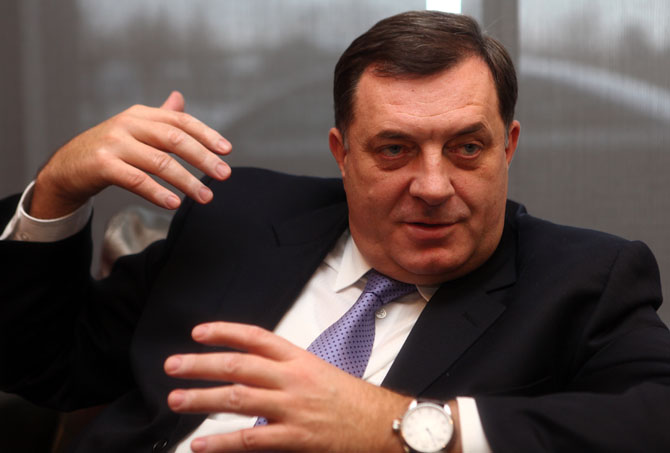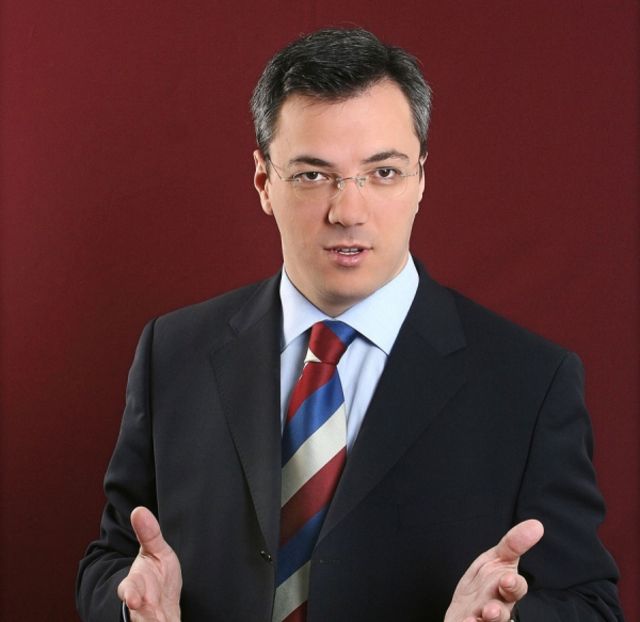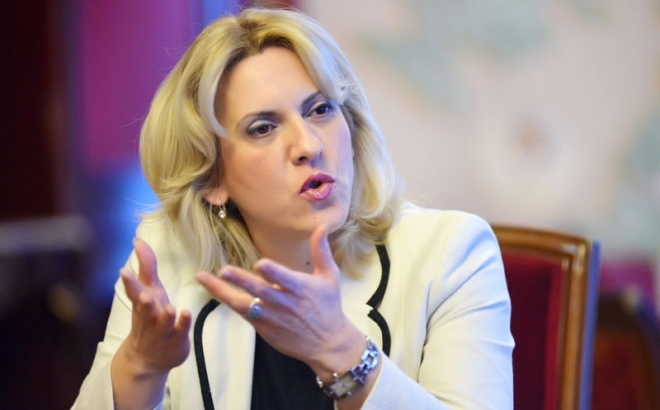The Serbs
Primarily concentrated in the RS entity, the Serb electorate’s attention is split between three equally significant races: the RS presidency race, the state presidency, and the RS legislature. Let’s begin with the entity.
Milorad Dodik

The self-declared “head honcho” of the RS, Putin’s man in Banja Luka, and leader of the Independent Alliance of Social Democrats (SNSD). Arguably the single most powerful politician in the country, the hardline nationalist, once elected as a Western-backed moderate, has spent the last eight years promising the dissolution of BiH on a near daily basis. Since coming to power in 2006, Dodik has successfully transformed the RS into a virtual one-party state while consistently obstructing any and all reform measures at the state-level, claiming they “strip the entities of their constitutionally-enshrined rights.” While given to vulgarities, attacking reporters, and currently orchestrating a concerted anti-voting drive in his entity, Dodik is nevertheless a shrewd politician. He has changed his stripes more times than one can count yet continues to enjoy a strong following from a large segment of the Serb public in BiH. Though facing a united opposition for the first time, and with his party’s prospects dimming somewhat, Dodik himself is likely to remain President of the RS.
Ognjen Tadić

Perennial “also-ran,” former member of the far-right Serbian Radical Party (SRS), current member of the Serb Democratic Party (SDS). Tadić is the joint candidate of the “Alliance for Change” coalition composed of the three main opposition parties in the RS. This self-styled boy-solider is hoping the RS electorate is finally ready for a new, moderate leadership—or at least, the closest thing to it available. The Sarajevo-native has a problem however; though he is a former Radical and current member of the party founded by Radovan Karadžić, he and his compatriots have been labeled by Dodik as a “pro-Bosnian” movement, a scathing indictment among the nationalist, conservative electorate in the RS. Tadić and the Alliance have rebuffed such claims though and have instead focused on the disastrous economic situation in the entity under Dodik’s leadership, believing that socio-economic concerns will trump Dodik’s chauvinist theatrics. Tadić has a steep hill to climb though and he’s not being helped by the opposition’s difficulty in receiving equal coverage by the government-friendly media in the RS.
With the entity presidency shaping up as Dodik’s race to lose, the real contest will take place for the Serb post of the state presidency.
Željka Cvijanović

Dodik’s Medvedev, current RS Prime Minister, member of the SNSD. Something of a political novice, at least as far as prime-time politics is concerned, Cvijanović was appointed to the Prime Ministerial post in March of last year and has since basked in Dodik’s favor. Like her outgoing predecessor in the state presidency post, Nebojša Radmanović, Cvijanović is explicitly campaigning to be Dodik’s proxy at the national level. There’s no small amount of cache in that among many of BiH’s Serb voters. But recent polls have not been kind to arguably the most prominent woman in BiH politics. Should she lose, she may be out of a (political) job entirely as Dodik does not suffer losers kindly.
Mladen Ivanić

The face of pragmatic Serb politics in BiH, former RS Prime Minister, head of the Party of Democratic Progress (PDP). In the 2010 elections, the former lecturer at the University of Glasgow and PhD in economics came within a percentage point of winning the Serb post of the state presidency. His second time around, he’s facing a still weaker opponent, though one backed by a powerful patron. A former BiH foreign minister, Ivanić’s prospective election could finally split the Serb electorate along discernable ideological lines, akin to what’s happened in the Bosniak and Croat camps years ago. An opposition member in the state presidency, and possibly even the RS legislature in opposition in hands, could isolate Dodik in previously unimagined ways. Still, the strength of nationalist politics can never be underestimated and even if elected, there is no way to be sure that Ivanić (and the Alliance for Change) the candidate(s) would bear any resemblance to themselves as leaders. Both Dodik and the SDP have proven that these are two entirely different realities, after all.
The Parties
As stated above, in the event of a split between the state presidency and RS entity presidency, the RS National Assembly would take on the role of kingmaker in Serb politics in BiH. Even if the SNSD manages to win both presidency posts, losing the legislature would seriously jeopardize Dodik’s hold on power in the RS and perhaps open up the door for more significant reforms in BiH as a whole.
Then there’s the role of the 1st of March coalition, a collection of most of the non-Serb parties in the RS, save for the SDP. On the back of a concerted voter registration drive, in BiH itself but also among the diaspora, the so-called “Homeland” list is hoping to win somewhere between 10-13 seats in the RS National Assembly. Were they to do so, they could become crucial to any future government formation in the RS and thereby secure unprecedented rights and concessions for the non-Serb population in eastern BiH.
It also remains to be seen how the coalition and the SNSD will split support in the state parliament. In the months leading to the election, the SDS and SNSD have had a sharp falling out but much of that may be the usual pre-election showmanship. In the past four years, the SDS and PDP have voted in lock-step with the SNSD in the state parliament. We shall see how substantive their falling out has been once the elections have passed.

